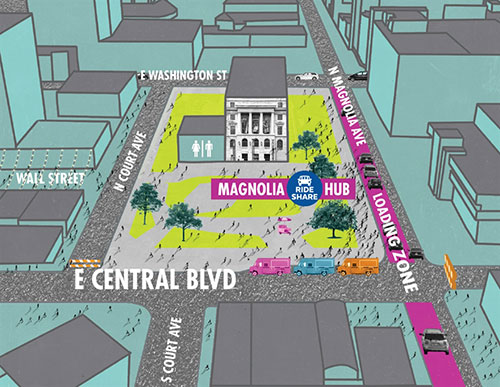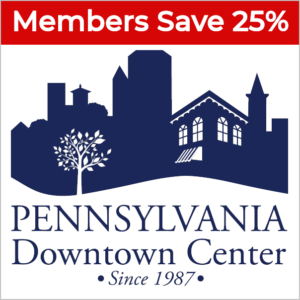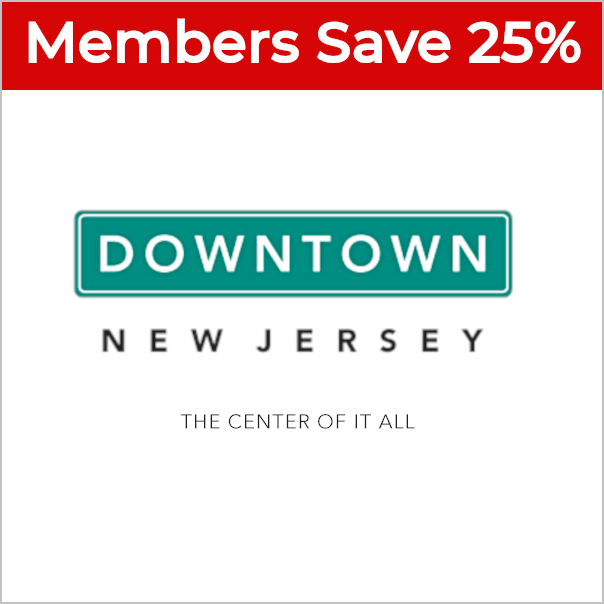
June 25, 2020 —
Before the coronavirus shutdowns silenced downtown Orlando, FL, city officials say designating locations for drivers to pick up downtown patrons improved traffic flow during the late-night rush hour when bars closed and thousands of people tried to leave a small area at once.
The hubs were open from midnight to 3 a.m. on weekends and occasional holidays. The city worked with Uber and Lyft to funnel traffic to specific pick-up points — which the city also outfitted with upgraded lighting, security guards, restrooms, and even food trucks.
“It’s been incredibly worthwhile,” says Dominique Greco, the city’s nighttime economy manager. “The really cool part is how much interest the city of Orlando has gotten from other cities.”
Greco says she has fielded inquiries from cities of all sizes. Given the rapid rise of ride sharing, downtown leaders everywhere are looking for solutions to the unintended side effects of the shift in transportation.
The hubs include private security guards to maintain order and janitors to clean the restrooms. To keep the process orderly, the city hired a transportation management company; its employees help cars queue and direct passengers into the cars.
The transportation management company costs the city about $100,000 every six months, Greco says, making it the biggest line item in the budget for rideshare hubs. The ultimate plan is to let drivers and passengers connect without a third party, much as the system works at airports.
Other costs include security guards and the cleaning service, along with one-time expenses such as new lights.
More on transportation hubs plus parklets, pedlets, and flex zones, appears in the June issue of Downtown Idea Exchange. Click to learn more about Downtown Idea Exchange and other resources for revitalizing downtowns and commercial corridors.


